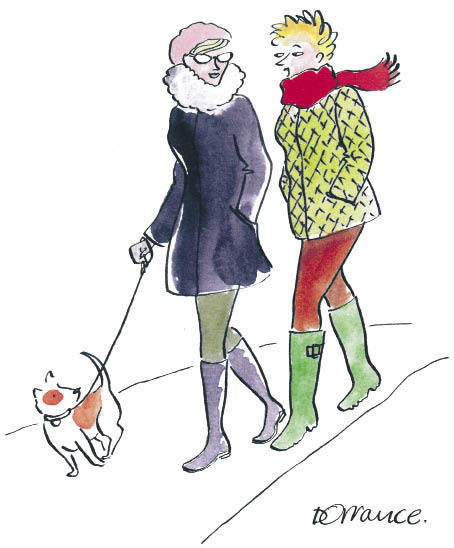His & Hers is a film (obviously) which, by rights, should be as dull as dishwater, if dishwater is truly dull, which it sometimes is and sometimes isn’t.
His & Hers is a film (obviously) which, by rights, should be as dull as dishwater, if dishwater is truly dull, which it sometimes is and sometimes isn’t. (I saw the face of Jesus in dishwater once; that was quite cool.) It’s a documentary featuring a group of Irish women — 70, in total — talking individually about the men in their lives: their grandfathers, fathers, boyfriends, fiancés, husbands, sons and grandsons, and that is it. Nothing else happens at all.
Actually, once, we do see a rather elderly, white-haired woman exercising on her home fitness machine, which she had asked for as a birthday present from her husband, a request that was originally denied. ‘Ah, sure, you can walk around the table, said he,’ is how she puts it, laughingly. And yet? This is such a delicious and loving film it’s somehow utterly absorbing, extraordinarily touching, and not as dull as dishwater, on the days dishwater does not have Jesus in it. (This is most days, alas; I never saw Jesus again and, although I did once see Cilla Black on a piece of toast, it wasn’t nearly as exciting.)
This is the work of Ken Wardrop, a young Irish film-maker who, I think, loves his mum, and uses the following Irish proverb as the film’s tag line: ‘A man loves his girlfriend the most, his wife the best, but his mother the longest.’ Is this true, do we think? I hope so. I hope my children will love me the longest because, in my old age, I intend to be a burden to them, and massively interfere, and am hoping the love will last out for quite a while before they bang me in a home.
Anyway, the film starts mutely with a baby in nappies happily finding her toes and finishes mutely with an old woman sitting alone by a window. The women in between are all ages, from four to 94, and are interviewed sequentially, so the film forms its own progressive, coherent structure.
Mr Wardrop has cleverly edited himself out altogether. We don’t hear a peep from him; no questions, no prompts, no narration, nothing. Instead, the women, who are all from the Irish midlands, talk directly to camera, in their own homes, surrounded by their own personal effects and, although their appearances are brief and unidentified and no more than vignettes, over time it builds to a whole which makes them feel all of a piece; as if it’s one life being recalled collectively. This is a patchwork quilt of a film, and just as warming.
There are sweet toddlers prattling on about the whims of their dads, and young daughters explaining why they can’t have a pet: ‘Daddy doesn’t like animals because when he was little he had a goat and it bit him.’ There’s the teenager, hopeful that a boy might ask her to the disco, while another young woman describes her live-in boyfriend as a ‘caterpillar turning into a butterfly’ because he’s agreed to do his own laundry.
The women are funny, frank, self-deprecating, proud and exasperatedly fond. ‘He says he washes up as he goes,’ says one wife about her husband’s curry-making activities, while raising an eyebrow. Although old age, bereavement and loneliness do have the final say, there is never any sentimentality or self-pity. It is banal, I suppose, but here’s the thing: banality observed admiringly becomes strangely moving and beautiful. This is a tender poem about getting though everyday life.
There is nothing especially cinematic about His & Hers. You could safely watch it on TV without losing anything. And the women are all strikingly homogenous: same background ethnically, same background economically, same sense of fulfilment, no sense of disappointment or hopes dashed although, I suppose, if Wardrop had wanted to make that film, he’d have made that film, and it would have been a different film and not this, a largely cheerful film.
I should also add that, although it is women talking about men, it’s not as if they are defined by those men. They are in charge, and doing the defining. That’s how it seems, anyhow. Wardrop has created a thoughtful and superbly choreographed piece of work about the importance of what is right on your doorstep. Yesterday, I came home and found the Yellow Pages on my doorstep, but I don’t mean that.






Comments